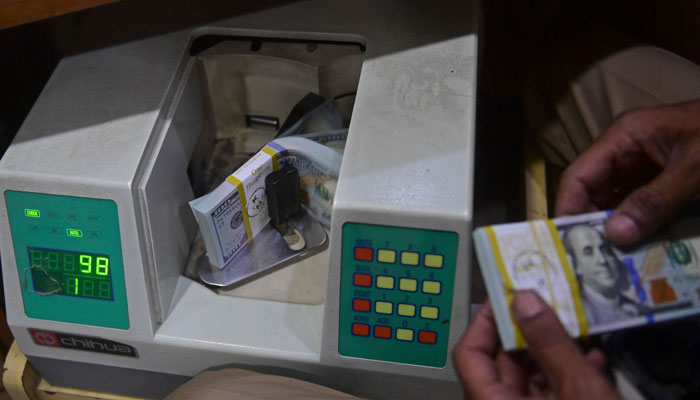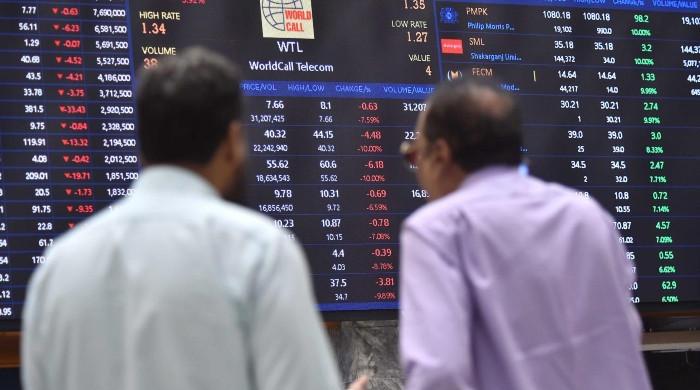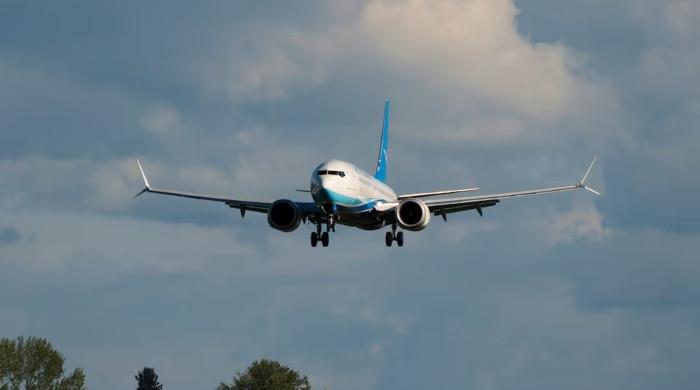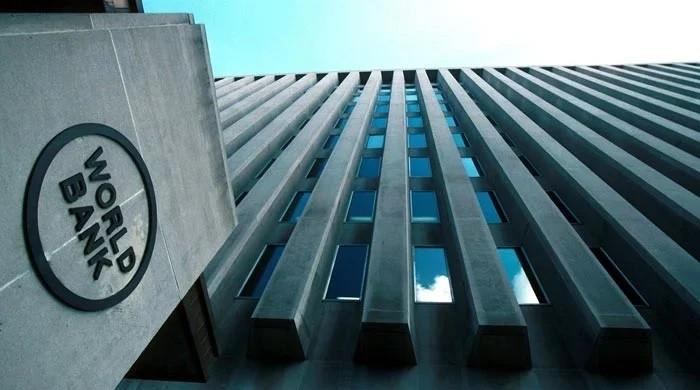Rupee breaches 211-a-dollar barrier on delay in revival of IMF programme
Dollar closes at Rs211.48, after appreciating Rs2 against Monday's record high of Rs209.96
June 21, 2022

- Dollar closes at Rs211.48, after appreciating Rs2 against Monday's record high of Rs209.96.
- Latest fall is attributed to quarter-end payments, delay in revival of IMF programme.
- "Currency will continue to fall until Pakistan manages to strike a deal IMF,” analyst says.
KARACHI: The Pakistani rupee remained highly volatile and continued its losing streak against the US dollar on Tuesday, losing Rs2 in the interbank market despite Finance Minister Miftah Ismail claiming that the International Monetary Fund (IMF) programme will be revived within the next two days.
According to the State Bank of Pakistan (SBP), the US dollar closed at Rs211.48, after appreciating Rs2, or 0.72%, against Monday's record high of Rs209.96.
The rupee continued its downtrend, which has also been attributed to the quarter-end payments due to the country's rising import bill, widening current account deficit and depleting foreign exchange reserves other than the delay in the revival of the IMF programme.
The latest fall since the start of the week in the rupee's value against the greenback came after traders resorted to panic buying on reports that some commercial banks had run out of foreign currency.
Read more: How a turbo-charged dollar is zooming past several Asian currencies
Businessmen have urged the State Bank of Pakistan (SBP) to play its due role in controlling the free-fall of the rupee. However, the central bank seems helpless to control the situation as it cannot supply dollars in the market to support the rupee since its own stock of dollars also stands at a depleted level.
Pakistan's foreign exchange reserves (held by the SBP) have depleted to a critical level and the country has less than six weeks of import cover remaining. The reserves are currently below $9 billion.
The country is fulfilling the prerequisite conditions to revive the IMF loan programme to avoid default on international payments.
Since the beginning of this fiscal year (July 1, 2021) to date, the rupee has collectively dropped by a massive 34.23% (or Rs53.94) compared to the previous fiscal year’s close at Rs157.54.
The rupee has maintained a downward trend for the last 13 months. It has lost 38.88% (or Rs59.21) to date, compared to the record high of Rs152.27 recorded in May 2021.
“The currency will continue to fall until Pakistan manages to strike a staff-level agreement with the International Monetary Fund (IMF),” AA Commodities Director Adnan Agar said earlier while speaking to Geo.tv.
The analyst was of the view that the investors’ confidence is completely shattered which can only be strengthened by positive development on the IMF front.
Read more: 'World economy hit by inflation, interest rate shock with no sign of abating'
Agar also mentioned that depleting foreign exchange reserves have triggered panic buying, giving speculators a chance to play with the demand and supply of the greenback.
SBP tightens restrictions
In an attempt to ease dollar shortages and conserve eroding foreign exchange reserves amid IMF loan uncertainty, commercial banks have been asked to seek the central bank's permission before initiating import transactions worth $100,000.
“Earlier, banks were needed to inform the SBP if they wanted to start processing the trade documents such as a letter of credits (LCs), other papers and making payments for the imports of certain goods worth $500,000,” a banking source familiar with the development told The News.
“It seems the central bank wants to discourage imports to save cash as banks are facing a dearth of dollars following a sharp depletion in the foreign currency reserves,” the source added.
The reserves held by the central bank fell by $241 million or 2.6% to $8.98 billion as of June 10 — a cover for 1.32 months’ of imports. The SBP, however, said it had not stopped banks from making import payments.











